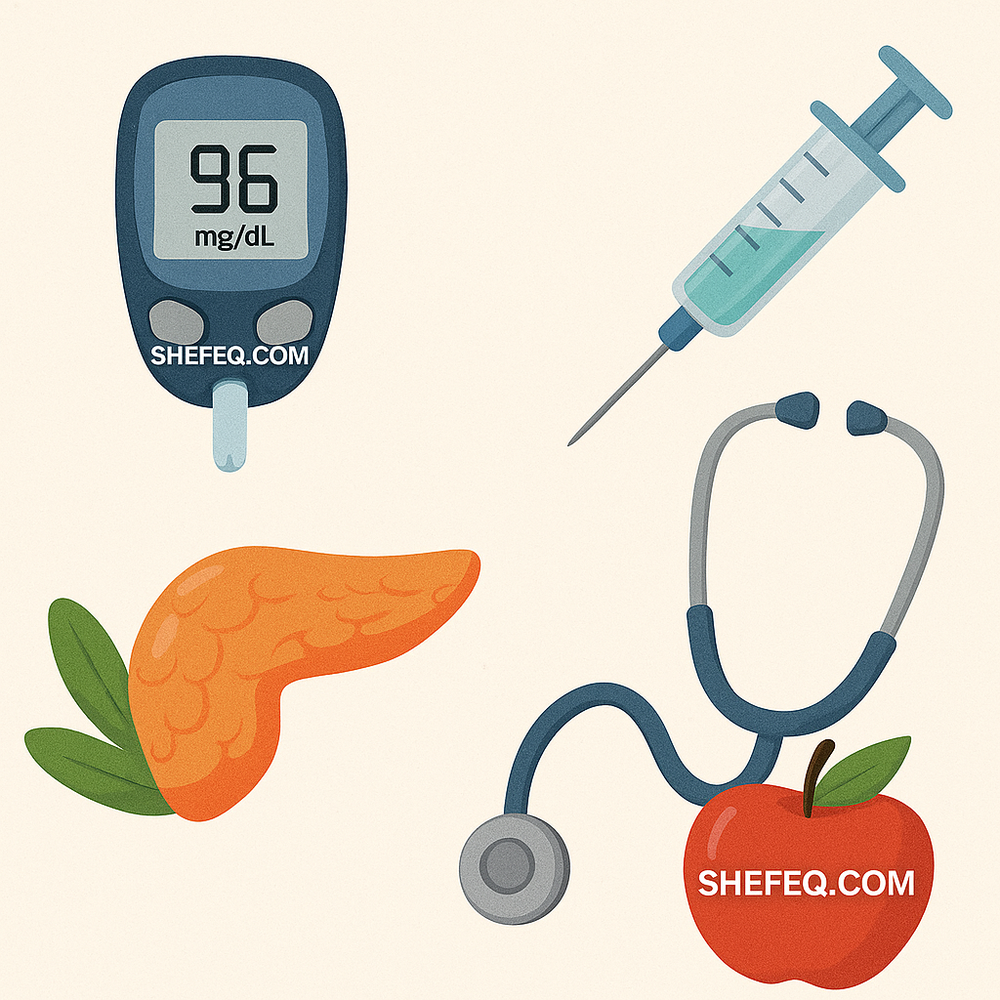I. Introduction – Sweet Silence
Sometimes, our body speaks to us—not with words, but through fatigue, dizziness, and a tiredness that lingers even after sleep. Often, we ignore these signals. Yet, silently, something is happening within: the body stops listening to insulin.
This condition is known as insulin resistance—where the body fails to utilize glucose effectively, becoming "deaf" to its own hormone.
II. What Is Insulin and Why Is It Important?
Insulin is a hormone secreted by the pancreas. Its primary role is to transport sugar from the bloodstream into cells, converting it into energy. Without insulin, cells cannot absorb this sugar.
Think of insulin as a key—it unlocks the cell's "door" to allow energy in. However, in insulin resistance, these doors become locked. No matter how much insulin knocks, the cell doesn't respond.
III. When Does Insulin Resistance Begin?
This issue often starts quietly. One might feel slightly fatigued, hungrier than usual, or sleepy in the afternoon. Often, these signs are dismissed because blood sugar levels remain normal.
However, the body begins to produce more insulin, leading to:
IV. Who Is at Risk?
-
Individuals with abdominal fat accumulation
-
Those leading a sedentary lifestyle
-
People with excessive weight
-
Individuals with a genetic predisposition (e.g., a parent with type 2 diabetes)
-
Those experiencing chronic stress and sleep deprivation
-
Women with Polycystic Ovary Syndrome (PCOS)
V. Pay Attention to the Signs: The Body Doesn't Stay Silent
Common symptoms of insulin resistance include:
-
Persistent afternoon drowsiness
-
Frequent hunger, especially cravings for sweets
-
Fat accumulation around the abdomen and waist
-
Difficulty sleeping at night and morning fatigue
-
Rapid weight gain
-
Darkening of the skin in areas like the neck and armpits
VI. The Body's Internal Struggle: What's Happening?
When cells don't accept insulin:
-
Sugar accumulates in the bloodstream
-
The body produces even more insulin
-
Excess insulin increases blood fat levels, blood pressure, and inflammation
This gradual process can lead to type 2 diabetes.
VII. How Is It Diagnosed?
Doctors diagnose insulin resistance using tests such as:
-
Fasting blood glucose
-
Fasting insulin levels
-
HOMA-IR index: (insulin × glucose) / 22.5
-
OGTT (Oral Glucose Tolerance Test): monitoring the body's response to sugar over 2 hours
VIII. How Is It Treated?
-
Dietary Changes (Crucial!)
-
Eliminate sugar, white flour, and sugary drinks
-
Replace simple carbohydrates with complex ones
-
Incorporate foods that enhance insulin sensitivity, like cinnamon, apple cider vinegar, chia seeds, and buckwheat
-
Establish a routine of 3 main meals and 2 snacks daily
-
-
Physical Activity
-
Engage in 30-minute walks 3-4 times a week
-
Perform strength-training exercises
-
Practices like yoga and Pilates are also beneficial
-
-
Reducing Stress and Cortisol Levels
-
Allocate daily quiet time and practice meditation
-
Enjoy nature walks and breathing exercises
-
Maintain a consistent sleep schedule (at least 7 hours)
-
-
Medication
-
The most common: Metformin
-
Enhances insulin sensitivity
-
Reduces sugar production in the liver
-
-
IX. Special Note for Women: PCOS and Insulin
Women often experience Polycystic Ovary Syndrome (PCOS) alongside insulin resistance. This combination can lead to:
-
Hair loss, acne, and irregular menstruation
-
Difficulty conceiving
However, with proper diet and insulin treatment, PCOS can be stabilized.
X. A Sample Day: Meal Plan
Morning:
-
Oats + cinnamon + chia seeds + yogurt + walnuts
Snack:
-
Half an apple + 2 walnuts
Lunch:
-
Buckwheat + steamed vegetables + fish fillet
Snack:
-
Unsweetened green tea + almonds
Dinner:
-
Spinach omelet + yogurt + cinnamon
Night:
-
If hungry: 1 tablespoon of flaxseed with yogurt
XI. Is Full Recovery Possible?
Yes. If diagnosed early and the above routines are followed, the body can start responding to insulin again.
Benefits include:
-
Increased energy
-
Reduced hunger
-
Gradual weight loss
-
Improved sleep, mood, and concentration
XII. The Role of the Soul: The Body Heals with a Listening Owner
Remember, the body isn't just a chemical machine. It desires to be heard, understood, and treated with compassion, not neglect. Sometimes, healing isn't just about diet but also about our relationship with ourselves.
A Final Question:
When did your body start speaking to you?
When did you begin to listen?
What moment made you say "enough" and prompted inner change?
Share your thoughts—your words on Shefeq.com might bring healing to someone else.

